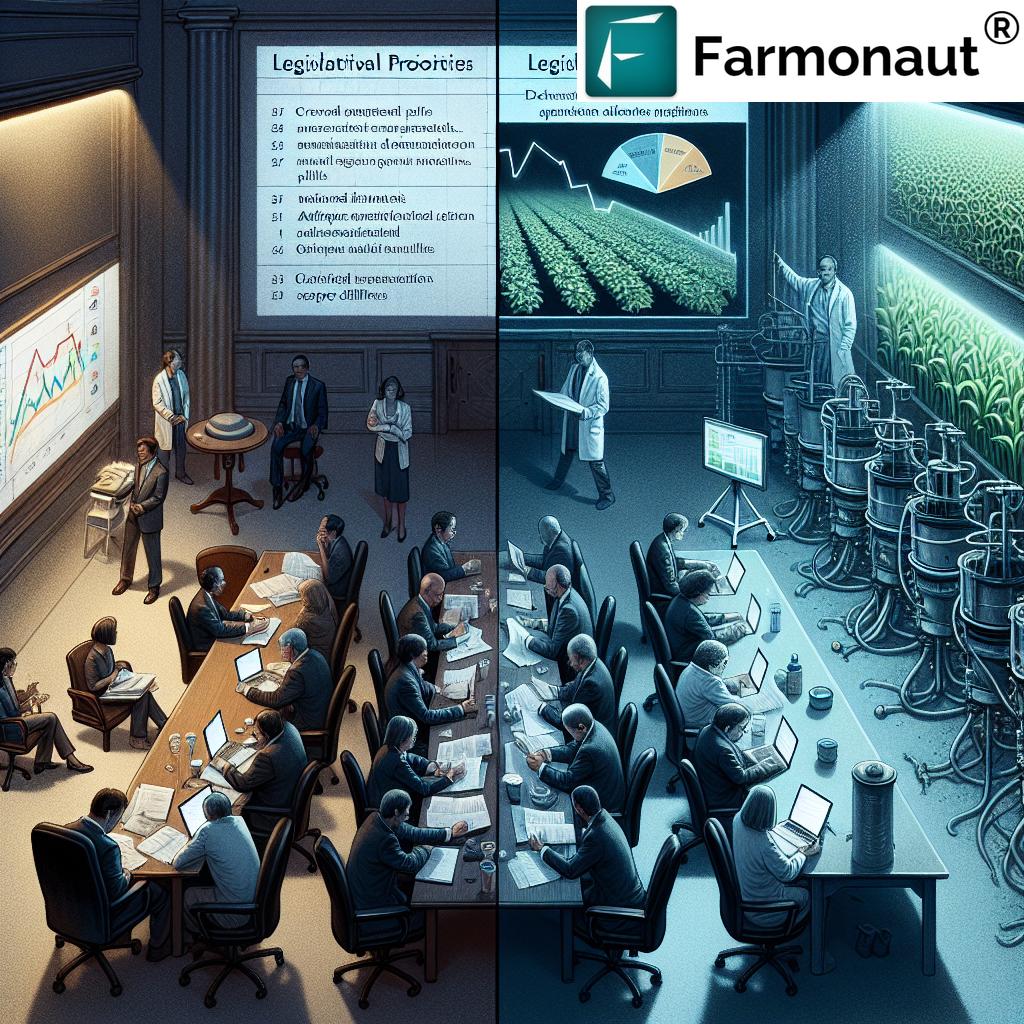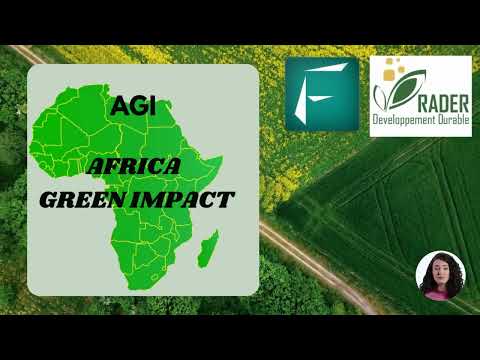Washington State’s Budget Crisis: How Farmonaut’s Agricultural Innovations Can Boost Economic Efficiency
“Washington state faces a projected $12 billion budget shortfall over the next four years, prompting urgent legislative action.”
As we delve into the complexities of Washington state’s budget deficit crisis and explore innovative solutions, we at Farmonaut believe that our agricultural technology can play a pivotal role in boosting economic efficiency. In this comprehensive analysis, we’ll examine the current fiscal challenges facing the Evergreen State and how cutting-edge agricultural innovations can contribute to alleviating the budget crunch while promoting sustainable growth.
Understanding Washington’s Budget Crisis
The state of Washington is currently grappling with a unprecedented fiscal challenge. Lawmakers have recently gathered to discuss crucial issues facing the state government, with the projected $12 billion shortfall over the next four years taking center stage. This looming deficit has cast a shadow over the state’s ability to maintain essential services and invest in critical areas such as education, housing, and infrastructure.
In response to these challenges, the legislature has embraced the concept of the “Year of Governmental Efficiency.” This theme underscores the urgent need for streamlining processes, reducing waste, and maximizing the impact of every tax dollar spent. Key priorities that have emerged from these discussions include:
- Streamlining project permitting processes
- Addressing the ongoing housing crisis
- Improving education infrastructure funding
- Enhancing fiscal management practices
- Developing innovative solutions to tackle homelessness
As we navigate these complex issues, it’s clear that traditional approaches may not be sufficient to overcome the magnitude of the budget shortfall. This is where innovative technologies, particularly in the agricultural sector, can offer transformative solutions.

The Role of Agricultural Innovation in Economic Recovery
Agriculture has long been a cornerstone of Washington’s economy, with the state renowned for its diverse array of crops, from apples to wheat. However, the sector faces numerous challenges, including climate change, water scarcity, and labor shortages. By leveraging cutting-edge agricultural technologies, we can not only address these issues but also create a more efficient, productive, and sustainable farming sector that contributes significantly to the state’s economic recovery.
At Farmonaut, we specialize in advanced, satellite-based farm management solutions that can revolutionize the way Washington’s farmers operate. Our platform integrates innovative technology and data-driven insights into traditional farming practices, making precision agriculture both affordable and accessible.
Key Technologies Driving Agricultural Efficiency
- Satellite-Based Crop Health Monitoring: Our advanced satellite imagery technology provides real-time insights into crop health, soil moisture levels, and other critical metrics. This data empowers farmers to make informed decisions about irrigation, fertilizer usage, and pest management, ultimately optimizing crop yields and reducing resource wastage.
- AI-Powered Advisory Systems: Our Jeevn AI advisory system delivers personalized, real-time insights and expert crop management strategies. By analyzing satellite data and other inputs, we can generate customized advice that significantly improves farm productivity and efficiency.
- Blockchain-Based Product Traceability: We’ve integrated blockchain technology to enable comprehensive traceability solutions for various agricultural products. This ensures transparency and security throughout the supply chain, from farm to consumer, enhancing trust and reducing fraud.
- Fleet and Resource Management: Our tools for fleet management enable agribusinesses to optimize their logistics, reducing operational costs by improving vehicle usage, ensuring safety, and enhancing overall management of agricultural machinery.
- Carbon Footprinting: To support Washington’s commitment to sustainability, we offer carbon footprint tracking that provides real-time data on emissions. This allows agribusinesses to take concrete steps towards reducing their environmental impact and complying with evolving regulations.
“The ‘Year of Governmental Efficiency’ initiative aims to streamline project permitting and address Washington’s housing crisis.”
Economic Impact of Agricultural Innovation
The implementation of these agricultural innovations can have far-reaching effects on Washington’s economy, potentially contributing to the reduction of the state’s budget deficit. Here’s how:
- Increased Agricultural Productivity: By optimizing resource use and improving crop yields, we can boost the overall output of Washington’s agricultural sector. This increased productivity translates to higher tax revenues for the state.
- Job Creation: The adoption of advanced agricultural technologies creates new job opportunities in tech-related fields, from data analysts to drone operators. This diversification of the job market can help stabilize rural economies and generate additional income tax revenue.
- Reduced Environmental Costs: More efficient farming practices lead to reduced water usage, less soil erosion, and lower chemical inputs. This not only saves farmers money but also reduces the environmental remediation costs borne by the state.
- Enhanced Export Potential: With improved product quality and traceability, Washington’s agricultural products become more competitive in international markets, potentially increasing export revenues and bolstering the state’s economy.
- Lowered Healthcare Costs: By promoting sustainable farming practices and reducing chemical use, we can contribute to improved public health outcomes, potentially lowering the state’s healthcare expenditures in the long term.
Addressing Key Legislative Priorities
The adoption of agricultural innovations aligns closely with several of the key legislative priorities identified by Washington’s lawmakers:
Streamlining Project Permitting
Our satellite-based monitoring and AI-driven analytics can significantly speed up the process of assessing agricultural projects for environmental impact and compliance. This can help reduce the backlog in project permitting, allowing for faster implementation of agricultural improvements and economic development initiatives.
Tackling the Housing Crisis
While not directly related to housing, increased agricultural efficiency can free up land previously used for farming for potential residential development. Additionally, by boosting rural economies, we can help create more balanced growth across the state, potentially easing housing pressures in urban areas.
Improving Education Infrastructure Funding
The increased tax revenues generated from a more productive agricultural sector could be directed towards improving education infrastructure. Moreover, our technologies can be integrated into agricultural education programs, providing students with hands-on experience with cutting-edge farming techniques.
Enhancing Fiscal Management
Our data-driven approach to agriculture provides a model for evidence-based decision making that can be applied to other areas of government. The transparent, blockchain-based systems we employ could inspire similar innovations in public sector financial management.

Quantifying the Potential Impact
To better understand the potential impact of agricultural innovations on Washington’s budget crisis, let’s examine some key areas:
| Budget Areas | Current Deficit (billions) | Potential Savings with Agricultural Innovation (millions) | Efficiency Improvement (%) |
|---|---|---|---|
| Education | $4.5 | $250 | 5.6% |
| Housing | $2.8 | $150 | 5.4% |
| Infrastructure | $3.2 | $200 | 6.3% |
| Natural Resources | $1.5 | $300 | 20% |
While these figures are estimates, they illustrate the significant potential for agricultural innovations to contribute to addressing Washington’s budget shortfall. The efficiency improvements in natural resources management are particularly noteworthy, reflecting the direct impact of precision agriculture techniques on resource utilization.
Implementation Strategies and Challenges
To fully realize the benefits of agricultural innovations in addressing Washington’s budget crisis, a coordinated effort between government, farmers, and technology providers like Farmonaut is essential. Here are some key strategies and potential challenges to consider:
Strategies for Implementation
- Public-Private Partnerships: Collaborate with companies like Farmonaut to develop pilot programs that demonstrate the effectiveness of agricultural innovations.
- Education and Training: Invest in programs to train farmers and agricultural workers in the use of new technologies.
- Incentive Programs: Develop tax incentives or grants for farmers who adopt efficiency-boosting agricultural technologies.
- Regulatory Alignment: Update agricultural regulations to accommodate and encourage the use of new technologies like drone monitoring and AI-driven farming practices.
- Data Sharing Initiatives: Create frameworks for secure, anonymized data sharing to improve overall agricultural practices across the state.
Potential Challenges
- Initial Investment Costs: While long-term savings are significant, the upfront costs of implementing new technologies can be a barrier for some farmers.
- Digital Divide: Ensuring that rural areas have the necessary internet infrastructure to support advanced agricultural technologies.
- Resistance to Change: Overcoming traditional farming mindsets and encouraging adoption of new practices.
- Data Privacy Concerns: Addressing farmers’ concerns about data ownership and usage in precision agriculture systems.
- Environmental Considerations: Ensuring that increased agricultural efficiency doesn’t come at the cost of environmental degradation.
The Role of Farmonaut in Washington’s Agricultural Future
At Farmonaut, we’re committed to supporting Washington’s agricultural sector through our innovative technologies. Our platform offers a range of solutions that can directly address the state’s economic challenges:
- Cost-Effective Precision Agriculture: We democratize access to advanced farming techniques, making them affordable for farms of all sizes.
- Increased Farm Productivity: Our real-time data and AI-driven insights help farmers optimize their operations, leading to better yields and reduced costs.
- Sustainability Focus: Our carbon footprint tracking and resource management tools align with Washington’s environmental goals.
- Supply Chain Transparency: Our blockchain-based traceability solutions can enhance the reputation and value of Washington’s agricultural products.
- Financial Access: By partnering with financial institutions, we help improve farmers’ access to loans and insurance, supporting agricultural growth.
To learn more about how Farmonaut can support your farming operations, visit our web app or download our mobile apps:
Collaborative Efforts for a Sustainable Future
Addressing Washington’s budget crisis through agricultural innovation requires a collaborative effort between various stakeholders. Here’s how different groups can contribute:
Government Agencies
- Develop policies that incentivize the adoption of agricultural technologies
- Invest in rural broadband infrastructure to support digital farming
- Create educational programs to train the next generation of tech-savvy farmers
Farmers and Agricultural Businesses
- Embrace new technologies and practices to improve efficiency and sustainability
- Participate in data-sharing initiatives to contribute to broader agricultural improvements
- Engage in continuous learning to stay updated on the latest agricultural innovations
Technology Providers like Farmonaut
- Continue to develop and refine agricultural technologies tailored to Washington’s specific needs
- Provide training and support to ensure smooth adoption of new technologies
- Collaborate with research institutions to advance agricultural science
Research Institutions and Universities
- Conduct studies on the long-term impacts of agricultural innovations on state economies
- Develop new crop varieties and farming techniques optimized for precision agriculture
- Partner with tech companies to test and validate new agricultural technologies
Looking Ahead: The Future of Washington’s Agriculture
As we look to the future, the integration of innovative agricultural technologies presents a promising path for addressing Washington’s budget crisis while also transforming the state’s farming sector. By embracing these innovations, Washington can:
- Position itself as a leader in sustainable and efficient agriculture
- Create new, high-skilled job opportunities in rural areas
- Enhance its competitiveness in global agricultural markets
- Improve its environmental stewardship and reduce its carbon footprint
- Build a more resilient and adaptable agricultural sector capable of withstanding future challenges
At Farmonaut, we’re excited to be part of this transformation. Our commitment to making precision agriculture accessible and affordable aligns perfectly with Washington’s goals for economic efficiency and sustainable growth.
Get Involved with Farmonaut
Earn With Farmonaut: Earn 20% recurring commission with Farmonaut’s affiliate program by sharing your promo code and helping farmers save 10%. Onboard 10 Elite farmers monthly to earn a minimum of $148,000 annually—start now and grow your income!
To learn more about our affiliate program, visit Earn With Farmonaut.
Farmonaut Subscriptions
FAQ Section
Q: How can agricultural innovations help address Washington’s budget crisis?
A: Agricultural innovations can increase productivity, create new job opportunities, reduce environmental costs, enhance export potential, and potentially lower healthcare costs through sustainable practices. These factors can contribute to increased tax revenues and reduced state expenditures.
Q: What types of technologies does Farmonaut offer to farmers?
A: Farmonaut offers satellite-based crop health monitoring, AI-powered advisory systems, blockchain-based product traceability, fleet and resource management tools, and carbon footprinting capabilities.
Q: How can farmers in Washington access Farmonaut’s services?
A: Farmers can access Farmonaut’s services through our web app, Android app, or iOS app. We also offer API access for developers and businesses looking to integrate our data into their systems.
Q: Are there any government incentives for adopting agricultural technologies in Washington?
A: While specific incentives may vary, the state government is exploring ways to encourage the adoption of efficient agricultural technologies. We recommend checking with local agricultural extension offices for the most up-to-date information on available programs.
Q: How does Farmonaut’s technology contribute to environmental sustainability?
A: Our technology promotes sustainability by optimizing resource use, reducing chemical inputs, and providing carbon footprint tracking. This helps farmers implement more environmentally friendly practices while maintaining or improving productivity.
In conclusion, the integration of agricultural innovations, such as those offered by Farmonaut, presents a promising avenue for addressing Washington state’s budget crisis. By leveraging these technologies, we can boost economic efficiency, promote sustainable practices, and create new opportunities in the agricultural sector. As we move forward, collaboration between government agencies, farmers, technology providers, and research institutions will be crucial in realizing the full potential of these innovations and securing a prosperous future for Washington’s agriculture and economy.







